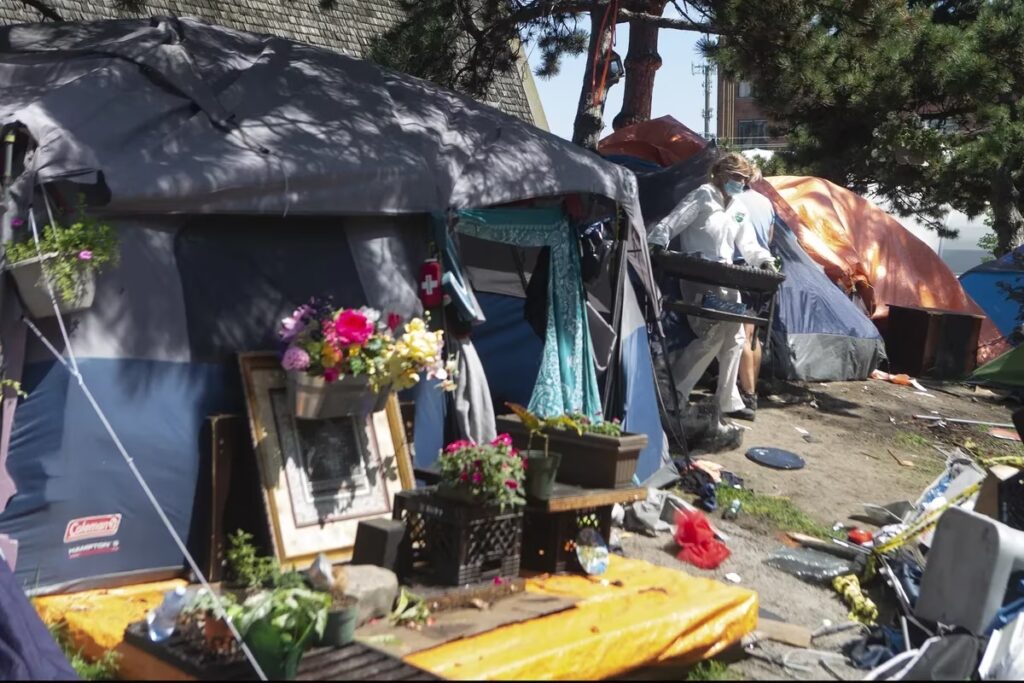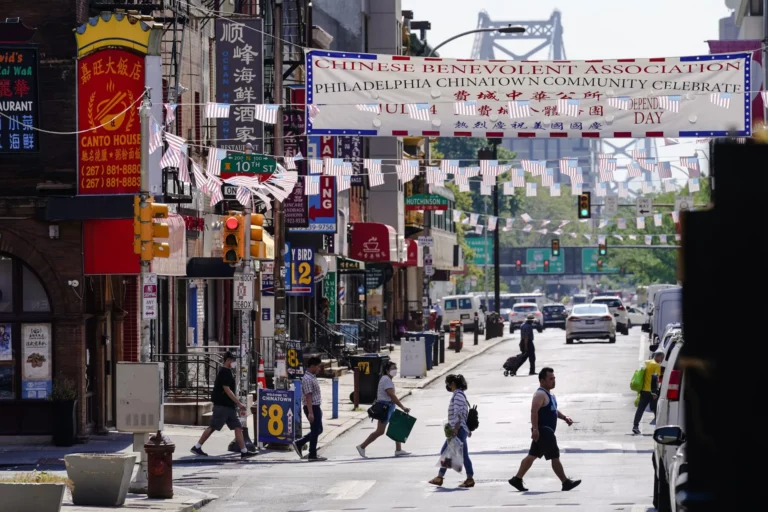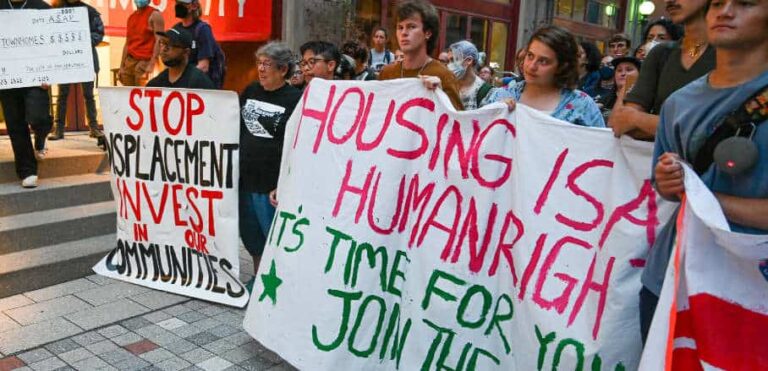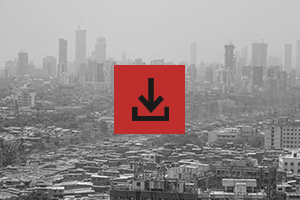Source: The Globe & Mail
Leilani Farha is global director of The Shift, the former United Nations Special Rapporteur on the right to housing from 2014 to 2020 and the co-host of the bimonthly podcast, Pushback Talks. Diana Chan McNally is a front-line worker supporting homeless people.
Last week, the Ontario Superior Court of Justice decided that the Regional Municipality of Waterloo had run afoul of the Canadian Charter of Rights and Freedoms when it enforced a bylaw and evicted a group of people living in tents on a vacant lot owned by the region in downtown Kitchener. The court found that forcing homeless people to leave an encampment when there aren’t enough shelter spaces violates their rights to life, liberty and security of the person – which are protected in Section 7 of the Charter.
In his ruling, Justice Michael Valente argued that there are insufficient shelter beds in the region for the number of people who are homeless, which has increased threefold since 2018. Moreover, the available spaces are ill-suited to the needs of the encampment residents; he notes that many shelters prohibit couples from residing together, ban alcohol and drug consumption, and can trigger trauma – particularly for those who have suffered in other congregate settings, such as Indigenous peoples.
Relying on the evidence of a doctor who has long worked with homeless people, Justice Valente also said that health and safety increases if they remain in encampments instead of being evicted. They are less likely to die or go untreated for illness, and more likely to get a decent night’s sleep, which decreases the risk of overdose and improves overall health.
Homeless people living in encampments in the province and their advocates are calling it a win. And certainly, Justice Valente’s decision – which follows a line of cases in British Columbia – sends a clear message to Ontario municipalities: You can no longer use bylaws to forcibly remove homeless people from public spaces when they have nowhere suitable to go. This should put an end to the brutal evictions that encampment residents experience.
This decision also acknowledges that they are human beings, whose lives matter and who are deserving of Charter protections, and it should provide them a measure of security and slightly better health outcomes. These are no small feats; any advancement that protects the lives of homeless people is a worthy fight.
However, when the enthusiasm for this case settles down, it will be clear that this is a limited victory. In the ninth-richest country in the world, it is astonishing that a court affirming the right to live in a tent or cardboard box in an outdoor parking lot counts as a “win.”
The ruling doesn’t move us closer to solving homelessness. The judge doesn’t require the regional government do anything to improve the lot of homeless people in encampments or elsewhere. In fact, Justice Valente specifically says this is not a case about resource allocation – it’s about prohibiting government action. And so, in some ways, cities are exactly where they were before the decision: largely left to address growing homelessness alone, without enough assistance from Queen’s Park and Ottawa, or the requisite resources and competencies.
Because the case was premised on the fact that there are too few accessible shelter spaces – meaning that encampments are a better bet for survivability – the Judge’s decision doesn’t address the need for local governments to ensure the necessities of life in encampments: toilets, sanitation services, water, food, electricity. This framing of the case may even erroneously signal to municipalities that bigger and better shelters are the solution to homelessness, rather than affordable, secure, long-term housing. This is precisely how Toronto and Hamilton previously escaped Charter censure.
The case also reinforces discriminatory attitudes toward homeless people – the very thing that makes solving homelessness so difficult. Justice Valente himself says that the Kitchener encampment residents can remain on the site during the day, and not just overnight, because of the undesirability of the location – which is to say, no one’s around to complain.
In other words, the extent of Charter protection for the security and dignity of homeless people appears to stop when they are seen to unduly interfere with the lifestyles of those who are housed. And in just four short sentences in the ruling, Justice Valente dismissed the idea that homeless people are a disadvantaged group – a remarkable conclusion, given that many have been beaten and killed across the country.
Given the dire situation for homeless people in Canada, we are willing to join the applause for the Waterloo decision. But let’s not provide a standing ovation.



